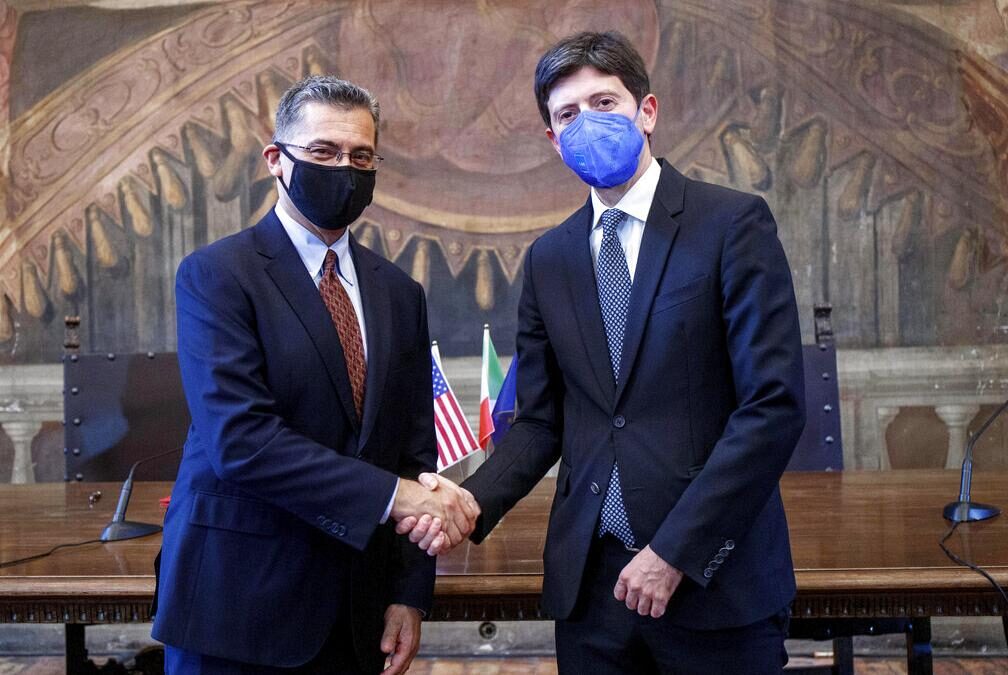 By Professor Valeria Fargion and Professor Marco Mayer
By Professor Valeria Fargion and Professor Marco Mayer
On the eve of the G20 – the Ministers of Finance and Health met to address the health and economic tragedy of the pandemic which unfortunately is far from being overcome after two years (the first confirmed case of Covid 19 is in Wuhan on November 17, 2019).
The approved document recalls what was decided on the matter of big banks at the G20 in London after the financial crisis triggered by the property and derivatives bubble in the United States in 2007. At the time, the Financial Stability Board chaired by Mario Draghi was given the task of preparing structural and corrective measures.
It is the first time in history that the Ministers of Economy and Health meet at the G20. This is already an important novelty because in the international arena social, health, and employment sector ministries along with their equally weak UN partners have always been marginalized compared to finance ministries, central banks, and the Bretton Woods institutions. The result has always been a blatant imbalance between the economic and social dimensions of development policies, as Timo Voipio, among others, insightfully argued well over ten years ago[I].
The decision to create a G20 Joint Finance- HealthTask Force is a step that could finally bring order to the vaccine babel and help the poorest countries (which have virtually nonexistent health systems) to bridge the infrastructure gap. It is no coincidence that all African leaders come for treatment in Europe or at most in private clinics in Nairobi.
The dashboard of the African Union documents weekly how not only the quantity of doses available is sufficient only for a small proportion of the population (which is well known) but above all that the actual administrations in sub-Saharan Africa do not reach more than 50% availability. A clear sign that it is not enough to send vaccines, but that facilities and health personnel able to guarantee their administration are needed.
In Africa (in addition to the devastating consequences of climate change) the absence of health systems worthy of the name widens more and more the distance between the population and the rulers. This creates a fertile ground for the spread of terrorist organizations that are increasingly gaining ground on the African continent, starting with the Sahel.
On some occasions, the G20 was not just a showcase of good intentions. Decisions between Ministers of the Economy and Ministers of Health – if implemented consistently – could produce a historic turning point in global health policy, which has seen in the last decade (until the outbreak of the pandemic) a constant reduction in the overall resources invested by the European Union and the Member States. Whereas in the year 2000 the latter’s health ODA represented 14.93 of total disbursements for global health by 2018 the corresponding figure dropped to 8.01.
The space left empty by Europe has been largely filled by international foundations and NGOs, but it is no longer the time to leave them the responsibility of supporting health systems in the poorest countries.
After the abovementioned step taken by the G20, it would be time for the EU to archive short-sighted and self-referential visions, finally taking on a leadership role in Global Health. This is in the interest of the entire planet and would have strategic value for Europe’s positioning in the global political and economic arena.
While the Italian media have largely disregarded the value of the decisions on global health taken on the 29th of October, and debate on secondary and colored aspects, the G20 chaired by Mario Draghi has perhaps achieved a historic result even before starting.
[I]Timo Voipio( 2008) “Comprehensive social policies for development in a globalizing world”, La rivista delle politiche sociali, special issue on “Social policy in a globalizing world”no.1, pp. 653-670. To place in a long-term perspective the current difficulties highlighted by the pandemic and the entrenched shortcomings of global social policies, it is most useful to run through the over ninety papers presented at the conference on “Social policy in a globalizing world. Developing a north-South dialogue” organized by the University of Florence in September 2007.
